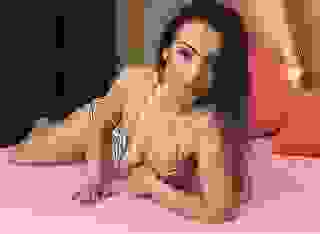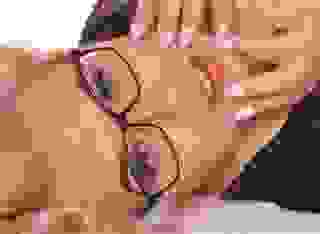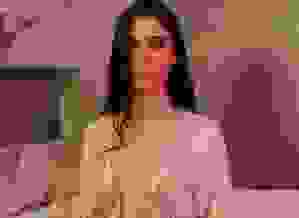Note: You can change font size, font face, and turn on dark mode by clicking the "A" icon tab in the Story Info Box.
You can temporarily switch back to a Classic Literotica® experience during our ongoing public Beta testing. Please consider leaving feedback on issues you experience or suggest improvements.
Click here+++++
The fuel we topped-off the tanks with on Virgin Gorda was full of algae, so the fuel filters and tank needed to be cleaned, and this took all the next day. Mother supervised the boys while Sara and Mary Ann made several days worth of salads and stuck them in the ice-box. Jen went ashore with her Nikon and was gone all day, and she returned, as the sun was setting, while we were loading a couple of fresh 50 pound blocks of ice into the box. She was red-faced and flushed, looked to me like she'd gone ten rounds with at least three men, and she disappeared into her cabin – saying she wasn't hungry when Sara called supper. As long as she didn't bring men onboard we had to remove ourselves with her more frivolous self-destructive impulses – and try to help her understand what she was up to, yet I could tell my mother was more than concerned. After dinner Sara tried to talk with her – and that did not end well.
We left early the next morning, before the sun was up, because the tides were favorable and that second hurricane, the more southerly of the two, was racing for Barbados – and it was much further south than was the norm. We cut south, squeezing between Aruba and Cape San Ramon, then we moved further offshore. Two reasons for that, really: the first was to give us more room to maneuver if that hurricane came west instead of moving to the north, and the second concerned pirates. The Venezuelan Navy was broadcasting notices that pirates were actively working the area between the Gulf of Venezuela and the Columbian border, and as we'd been hearing more graphic descriptions of these pirate's methods in Willemstad we decided to stay well offshore.
Yet we had perfect weather all the way to the San Blas Islands. Generally out of the east at a constant 20 knots, and Sirius took off like she'd been shot out of a cannon. On our second day out, after the wind picked up a little, she averaged twelve knots for ten hours – a blistering pace for an old, heavy schooner. Her sails were new, however, and the rigging updated, and I doubt pirates would have had an easy time catching us.
We anchored, unmolested, off Isla Chichimé three days later, in the clearest green water any of us had ever seen. There was one other sailboat in the anchorage, a thirty foot cutter flying a British ensign. My father was about to dive into the water when the cutter's sole occupant yelled something to the effect of "You'd better not!" – and pointed out a rather large tiger shark cruising the nearby reef.
"Thanks!" we replied – in unison – then we inflated the Zodiac and hoisted the little Seagull motor onto her transom, then Mom and Dad and Jen motored ashore. The young man on the cutter took one look at Jennifer and hopped into his inflatable and followed them ashore, and Paul looked at me, then at Sara – and we all said – together, in one voice – "No way!"
Mother of course invited Douglas Cunliffe to dinner that night, and the next day Jen departed from our midst. I did not hear from her again for almost twenty years, and that resulted from a chance meeting at the airport in Tokyo, Japan. Anyway, they left Panama and passed through Polynesia on their way to New Zealand, then they headed west to South Africa, to Cape Town, and from there north to the UK. They'd written a book about their adventures, she told me that day in Tokyo, and they'd gotten married in Auckland along the way. She had four boys, all blond, and she still looked gorgeous.
And alas, poor father. He never got his threesome.
Still, he wasn't complaining.
Mother saw to that.
+++++
Transiting the canal was anti-climactic. A half hour of pure, unmitigated terror in the Gatún Locks followed by endless hours of mosquito infested motoring with a seriously bored Panama Canal Company Pilot who, by law, had to steer the entire crossing, all the way to the Miraflores Locks, where another half hour of terror lay in wait. I say terror advisedly, as you motor into the lock behind something petite, like a super-tanker loaded with forty trillion armadillo turds, and then the lock floods (in Gatún) or empties (in Miraflores) and your little sailboat bobs around like a cork in a washing machine, while the SS Armadillo Turd looms overhead – straining at it's lines. That's about the time you realize if the lines holding the SS Armadillo Turd's break, you and your boat will end up looking a little like an armadillo's turds.
Beyond the surly pilot's cheerful demeanor, the only thing any of us remembered a day later was the constant barrage of mosquitos. As malaria was still an issue in those waters, we doused ourselves in all manner of insect repellant, and if someone had lit a match I think we'd have all combusted.
After losing that day in Willemstad we didn't take a day off for sightseeing; we instead refueled, and filled ten five gallon 'jerry cans' as spares, then lashed them just forward of the aft mast. We went to a Navy PX (thanks, Dad) and loaded up on American produce, including FRESH MILK, and we replenished the ice in the box. That done, and in record time, too, we cast off and started the long slog west to Hawaii.
I wish I could regale you with tales of heroism in the face of monster storms, but in truth it was a nineteen day idyll. Sara cooked, Mary Ann and Paul read Sartre (aloud, for god sakes), and then Paul tried to put it all to music – which, sad to say, did not work out well. We had one storm, a small one in the middle of the night, and we all rushed on deck to douse sail and tie things down before a freight train of thunder and lightning swept by, knocking Sirius on her beam ends for a split second, but that was it. I was almost a proficient sailor by that point, which left mom with tons of free time on her hands, or, as the case may be, to use her hands on Dad, and sure enough, a week shy of O'ahu mom started vomiting – in the morning, usually. Forty seven and preggers. Me, nine months away from becoming a brother – and what do I do? Well, in no time flat Mary Ann, now nineteen, was pregnant too – with our first and only. And, strange to admit, she was on The Pill, too.
So, what about Paul and Sara, you ask? Mr and Mrs Responsibility? Nope. They didn't get pregant – 'til October, anyway.
Maybe it was something in the water.
Or maybe something else was at work. Something like destiny, but who the hell knows.
+++++
We had three and a half weeks until class started, call it twenty five days and change. We could just have, conceivably, made it in twenty days – but the slog to San Francisco from O'ahu involves heading north a bit, in effect heading as if sailing to Vancouver, B.C. about a third of the way across, then taking aim for Portland before sliding into the approaches for the Golden Gate. This trip depends on knowing the precise location of the North Pacific high, as well as the various currents that arc under the Gulf of Alaska and along the coastline of the Pacific Northwest. And though I'd been studying the interplay of weather and current for weeks, I'd come to realize that these juxtaposing elements were capricious – and not so easy to predict.
To complicate matters, mother had zero experience sailing in the Pacific, not to mention she was sick as a dog several hours each day, and in the end that settled the matter. We tied Sirius off at a yacht club near Honolulu and flew home, the idea being we'd resume the voyage early next summer.
With two newborn babies, I wondered?
"No, that's not going to happen, and you know it as well as I do," Dad said, and I had to agree. In the end, we decided to ship Sirius to San Francisco, and after the paperwork was done she was scheduled by an agent we were told she'd arrive in mid-November. Paul moved Sara to an apartment near downtown LA and he went off to USC where, as I've mentioned, he ended up playing football when not doing the Pre-Med thing. Sara thought she'd teach music but instead found steady work as a studio musician at MGM.
Mom and Dad, of course, went back to Dallas, to our old house on Belclaire. To the best of my knowledge, she never drank then, not a drop. I think the whole sex thing dropped off for a while, at least until Viagra came along, but Dad continued to fly until he couldn't. When Ben, my kid brother, graduated from Deerfield, Dad was headed towards seventy years young. When Ben announced he'd made it into Harvard I think Dad got to work on making another brother, but that didn't work out.
Which brings me to the next part of this tale.
The sad part of the story.
The part where, flying over North Vietnam, I was shot down and killed.
+++++
Which takes me back to San Francisco, circa August, 1965. Mary Ann and I flew into SFO and I set about finding a home for Sirius. I did, in a marina near San Francisco International, and secured a slip there beginning that November; then I registered for classes and moved all my worldly belongings, one duffel bags worth, anyway, into one more naked dorm room. Dad drove out as soon as Mom was settled and under a doctor's care, he drove his twenty year old Willys Jeep across the western half of the United States and left it with me, then helped get Mary Ann settled at Stanford.
She'd been on a full-ride scholarship at Deerfield, but her family was, to put it charitably, very poor. High school had been, oddly enough, her first time away from home, yet she never went back to Louisiana after her arrival. She went home with friends instead, roommates for the most part, so she'd been cut off from family as soon as she left for Massachusetts – at this point four years earlier.
So my mom and dad had, for all intents and purposes, adopted her, and they began seeing to her financial interests as soon as she became pregnant. I know it's strange to admit this, but I didn't meet her family for several years, and during this part of our life together they remained a great unknown. She never talked about them, and while I should have asked, expressed some curiosity, I didn't – and I never pressed the issue.
Dad, on the other hand, did what Dad's do best. He sent detectives to Louisiana to find out what the real story was. There are two points worth remembering about all this: whatever he found out, it was grim and he didn't tell me a thing, and whatever he learned – it only made him love Mary Ann all the more.
We went to Trader Vic's downtown before he left to go back to Dallas, and he introduced me to Suffering Bastards, and the two of us hoisted our glasses to Sirius, and to Jennifer – and to endless runs under the sun. Mary Ann drank water, thank you very much, but even she cried a little as we talked about our experiences. We'd had a helluva time, even if everyone got pregnant. The days and nights we spent in the Pacific took on a new meaning, became larger than life – indeed, bigger than they really were – but recollections of long trips in small boats often turn out that way.
Then Dad left and classes started; I drove the Willys down the 101 on weekends and we hung out at the library, just like any fourteen year old boarding school student. I thought about all that freedom stuff I'd felt after graduating and realized that kind of freedom was little more than an illusion, and that the only freedom I'd ever felt, as such, was out there in the middle of the ocean. That kind of hit me hard after we got back into the old boarding school grind.
So, we ate hot pastrami sandwiches at The Oasis and drove over to Half Moon Bay and picked artichokes, then had them cooked under the little tents that farmers had setup along the side of the road. We ate them in the sun, dipping them in lemon butter and wondering why anyone would ever live anywhere else, but our eyes turned to the Pacific from time to time – and we knew that time had created a new bond between us. We went down to LA and visited Paul and Sara when they phoned and told us Sara was preggers too, and she cooked one of her wild curries that night and we ended up talking about the Pacific.
The trip, you see, just wouldn't let go of us. I guess that's true of most voyages, and we each admitted to regretting not finishing the trip by sea. The words hung over us for a while, too, and it turned out we all thought about the consequences of the decision more than we'd have cared to admit. We flew back north lost in thoughts of 'what if.'
And soon enough Sirius was unloaded from a huge Matson freighter in Oakland, and after a few hours work in a yard there she was again – and our spirits soared. We motored across the bay to her new home, got her tied off and over the next few days we moved back aboard. With Thanksgiving ahead we planned to have a big blowout aboard, but Paul had a game in Oregon and both Sara and Mom didn't feel like traveling. Dad came out that next week, however, and we sat aboard that night lost in the warm glow of oil lamps and candles, and we realized there wasn't one heat source aboard – and it was 39 degrees outside, with 90 percent humidity. The walls began to sweat, then were literally running with streams of condensation – and while we laughed we realized how much work needed to be done to make her a home suitable for Northern California. True to form, Dad tackled that project over the next few days, and the three of us had an early Thanksgiving aboard before he got in the Baron and flew back to Texas.
We had a few friends from school down for supper on the boat, but by and large no one could relate to her, or to what we'd done with her over the summer. She was huge, and the story I told of how I'd come to own such a beast sounded, at best, improbable. It was, I had to admit, an improbable truth – yet the Doc seemed so far away now. All that was a dream, now. Was it real?
All of us, Mom and Dad and Paul and Sara made it for Christmas, and we set up a little tree and put presents under it, hung some lights and made ornaments and hung those too, and then one moment we noticed Mary Ann crying.
Sara sat with her, asked what was wrong.
"This is my first Christmas tree," she said, and we fell silent, my father particularly so – yet after we looked at her – and within ourselves – right then and there we decided this Christmas was going to be Mary Ann's Christmas. There'd be a world full of new babies next year, but this year it was going to be her turn.
When the morning came she had more stuff under that silly tree than any of us thought possible, and we watched this pregnant, nineteen year old girl turn into a five year old for about an hour or so, and I think we had more fun than she did. It was a glorious morning, a wonderful day, and it was hers – and maybe ours too.
And there was one thing she'd really wanted more than anything else: a camera, a real camera. And she'd wanted one ever since she'd watched Jen walking around with that Nikon F over her shoulder.
So Dad and I went out and got her a Leica, along with a couple of lenses, and for the next week she went out with me or Dad, usually Dad, and we taught her what we knew about taking pictures. And of course, by the end of the week she was a Photographer. I had no idea what her IQ was those days, but it is somewhere high up in the stratosphere, and when she put her mind to something she mastered it in a few hours.
Still, more to the point, Christmas was the first time in her life she'd been completely surrounded by people who loved her unconditionally, and I think that week was a real turning point for her, and for us. She knew how to love – that had come easily to her, easily in the way a puppy starved for affection knows just what to do. I thought, at the time, anyway, her problem might have been how to accept love from others.
I wasn't wrong, of course, but those few days marked the point in her life where she finally accepted that love could come without conditions. And without risk. She'd grown up in a mobile home, in the wooded swamps of southern Louisiana. Her mother worked, I learned later that year, as a mechanic in a gas station north of Chauvin, while her father worked on shrimpers and was gone for long stretches of time, out on the water. She grew up alone, in a place where older cousins and uncles came by for entertainment, and she was the floor show.
What saved her, I suspect, was a student teacher doing her internship at the local school, a bright girl who figured out Mary Ann was some kind of rocket scientist and got her tested. Teachers took an interest, administrators found out what was happening to her at home, and a local politician figured out how to get her into his alma mater. That's how she came to me, into my life – the tortured, circuitous route that carried her along – like a leaf in a gale – to that Christmas morning. Her father, it turned out, liked to import certain less than legal pharmaceutical products when he was ashore, and had spent some hard time at The Farm, as the state penitentiary in Angola is known. Colorful people. She did not like them in the least.
When my father hired the private detective to dig into Mary Ann's family background, he deliberated a while before deciding to make contact himself, then one day he flew over and had a local sheriff take him down to Chauvin to meet his future in-laws. Patricia Oberon was home that day and he talked with her a while, then the sheriff took him back to the Baron. My father asked the man to keep an eye on them, and to let him know when Patricia got into trouble.
Many years later father related that conversation to me.
Mary Ann's mother was, he told me, pretty enough, and she was bright, too. Not smart, he said, but clever – mischievously so. She was also an addict, heroin, the sheriff reported, and she had a long arrest record. When he told Patricia about Mary Ann, about her life with me, as it had evolved since the little girl left home, she just smiled and said something about someone finally getting out. Getting away from the hell she had, herself, grown up in. There was no discussion about Mary Ann's father, Clyde, or his whereabouts. He was on the run, she inferred, the police had several felony warrants outstanding, and in any event, my father did not want to meet the man – but what he saw that day stuck with him. He saw Mary Ann as a miracle of perseverance after that, and, as I mentioned, he only loved her more.
We had our baby in mid-May, and that about a week after my brother Ben came screaming into the world, and I couldn't help thinking that, as usual, I'd pushed the whole 'growing up too fast' thing to the limit. We were nineteen, we had a kid, and were living a life most people in their thirties lived, except Mary Ann and I were living on a seventy two foot schooner on San Francisco Bay. Everything about this reality was surreal, if only because I hadn't earned any of it. It had landed in my lap, so to speak, and I was, really, clueless about what it all meant. What it was worth, in human terms.
But I focused on school, studied engineering during the day then came home and spent evenings with my wife and daughter. Mary Ann managed to keep up with her school work, managed to keep her 4.0 grade point average intact, and as trite as this sounds, we fell into a routine and, somehow, we made it work. Paul and Sara did too, oddly enough, and in time we only grew closer. They came up on weekends and spent time on Sirius, we sailed together and reminisced, the Pacific so close, yet so far away, and time passed quickly.
I still flew, in fact more than ever, and when I graduated I opted to go into the Navy. Mary Ann made it into the med school at Stanford, Paul into UCLAs, and my mother visited that summer, little Ben now not so little, and she told me that she and my father were going to divorce.
+++++
I think it's called 'Middle-Aged Crazy' for a reason, and probably wth good reason.
He came out one day, out of the blue, and we sat in the cockpit and talked about what had happened. He could not, he said at one point, keep it in his pants. But, he said, he'd never been able to, and now his flagrancy had caught up with him.








